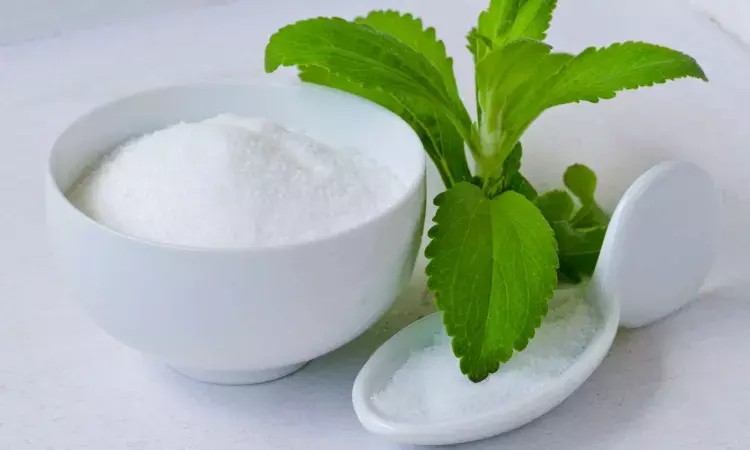- Home
- Medical news & Guidelines
- Anesthesiology
- Cardiology and CTVS
- Critical Care
- Dentistry
- Dermatology
- Diabetes and Endocrinology
- ENT
- Gastroenterology
- Medicine
- Nephrology
- Neurology
- Obstretics-Gynaecology
- Oncology
- Ophthalmology
- Orthopaedics
- Pediatrics-Neonatology
- Psychiatry
- Pulmonology
- Radiology
- Surgery
- Urology
- Laboratory Medicine
- Diet
- Nursing
- Paramedical
- Physiotherapy
- Health news
- Fact Check
- Bone Health Fact Check
- Brain Health Fact Check
- Cancer Related Fact Check
- Child Care Fact Check
- Dental and oral health fact check
- Diabetes and metabolic health fact check
- Diet and Nutrition Fact Check
- Eye and ENT Care Fact Check
- Fitness fact check
- Gut health fact check
- Heart health fact check
- Kidney health fact check
- Medical education fact check
- Men's health fact check
- Respiratory fact check
- Skin and hair care fact check
- Vaccine and Immunization fact check
- Women's health fact check
- AYUSH
- State News
- Andaman and Nicobar Islands
- Andhra Pradesh
- Arunachal Pradesh
- Assam
- Bihar
- Chandigarh
- Chattisgarh
- Dadra and Nagar Haveli
- Daman and Diu
- Delhi
- Goa
- Gujarat
- Haryana
- Himachal Pradesh
- Jammu & Kashmir
- Jharkhand
- Karnataka
- Kerala
- Ladakh
- Lakshadweep
- Madhya Pradesh
- Maharashtra
- Manipur
- Meghalaya
- Mizoram
- Nagaland
- Odisha
- Puducherry
- Punjab
- Rajasthan
- Sikkim
- Tamil Nadu
- Telangana
- Tripura
- Uttar Pradesh
- Uttrakhand
- West Bengal
- Medical Education
- Industry
Stevia-based sweeteners environmentally friendly alternatives to sugar

UK: A recent study published in The International Journal of Life Cycle Assessment has highlighted that stevia-based sweeteners reduce environmental impact when replacing sugar's sweetness.
The study from the University of Surrey showed that natural sweeteners derived from stevia may produce as little as 10% of the greenhouse gas emissions of sugar while still providing the same level of sweetness.
Researchers conducted a Life Cycle Assessment on steviol glycosides extracted from stevia. They found that the production of the sweetener caused less environmental impact across a wide range of markers compared to sugar. For example, it offers an opportunity to reduce land use or water consumption compared to the same level of sweetness as sugar.
Key findings include:
- Global warming potential for the production of RA60 (stevia derivative) was found to be 20.25 kgCO2-eq/kgRA60 on a mass basis and 0.081 kgCO2-eq/kgSE on a sweetness equivalence basis.
- Field production of stevia leaves was found to be the main impact source for most impact categories and all four focus categories.
- Extraction of the RA60 was the main source of impact for the others. Leaf processing and seedling propagation were minor contributors to the life cycle impact.
- Removing international transport from the supply chain reduced global warming potential by 18.8%.
- Compared with sugar on a sweetness equivalence basis, RA60 has approximately 5.7% to 10.2% impact on global warming potential a 5.6% to 7.2% impact for land use, and is lower across most other categories.
Many non-nutritive sweeteners (NNS), like steviol glycosides, can reproduce the taste of sugar without associated health risks, such as tooth decay, obesity, or diabetes. They can do this because they are many times sweeter than sugar. For example, 4g of steviol glycosides provides the sweetness equivalent of 1,000g sugar because it is perceived to be 250 times sweeter.
Dr James Suckling, the lead author of the study working in the University of Surrey's Centre for Environment and Sustainability, said:
"The use of steviol glycosides and similar natural products could be sweet news for the health of our planet. However, our study readily admits that much more work needs to be done to understand the health impacts of steviol glycosides and other non-nutritive sweeteners when consumed as part of a wider diet."
Reference:
Suckling, J., Morse, S., Murphy, R. et al. Environmental life cycle assessment of production of the high intensity sweetener steviol glycosides from Stevia rebaudiana leaf grown in Europe: The SWEET project. Int J Life Cycle Assess (2023). https://doi.org/10.1007/s11367-022-02127-9
Dr Kamal Kant Kohli-MBBS, DTCD- a chest specialist with more than 30 years of practice and a flair for writing clinical articles, Dr Kamal Kant Kohli joined Medical Dialogues as a Chief Editor of Medical News. Besides writing articles, as an editor, he proofreads and verifies all the medical content published on Medical Dialogues including those coming from journals, studies,medical conferences,guidelines etc. Email: drkohli@medicaldialogues.in. Contact no. 011-43720751


